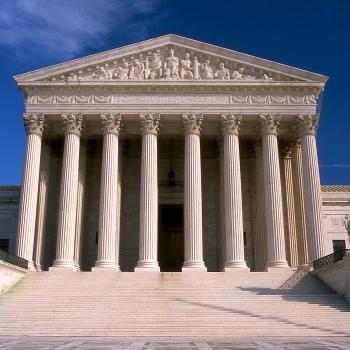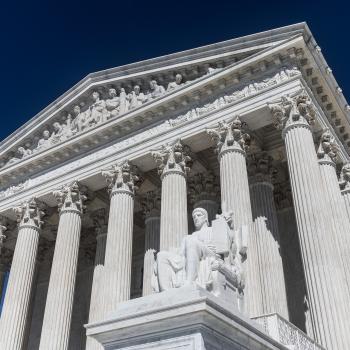And we’re back! This week we finish the meeting of the UN Committee on the Rights of the Child in Geneva.
Jody and Nora are presenting four possible plans for implementing the UN Convention on the Rights of the Child in the U.S., and asking the committee to choose one. That is not how it works. Nations party to the treaty create their own implementation plans and file them with the committee. The committee may make recommendations, but they do not dictate how the implementation process will take place. Instead, each nation takes the ideals of the treaty and implements them in their own particular situation.
The committee’s website includes samples of these documents from various countries. Usually nations’ reports to the committee focus on things like child poverty, or the effect of wartime violence. They list things the nation has already done, bills and programs and plans. The committee may then create a list of issues or concerns that they have, asking the nation for more information or making recommendations, but these things are not binding.
The first two implementation scenarios Jody and Nora presented involved the death penalty for juveniles, and parental consent for abortion. The next two involve corporal punishment, and Sunday school teachings. Yes, you read that right.
“All right, if you will look at the third scenario. We have a core issue of importance to our treaty, the spanking of children. Unfortunately, our nation still clings to this archaic theory of brutalizing children.”
This language seems a bit heightened for a hearing before a committee that includes numerous representatives from countries that have not banned spanking themselves.
“And while we could file this case anywhere in the country, because so-called moderate spanking is allowed in all states, we are recommending that a case on this point be filed in Iowa. A decision of the state’s supreme court in the mid-1990s held that even if the spanking leaves temporary redness such actions do not constitute child abuse. Taking on this precedent under the authority of the Convention would bring much satisfaction.”
“Indeed,” harrumphed the British delegate, a man in his late sixties.
All of the implementation strategies Jody and Nora offer involve filing court cases. That seems odd given that, based on a perusal of the documents on the committee’s website, it appears that the committee’s recommendations don’t tend to center at all on court cases. Instead, they center on legislation, and the creation of programs to support child welfare, etc.
Also, note the petty vindictiveness is imputed to Jody. She’s not interested merely in overturning spanking. She’s interested in doing it in a specific place that had a court decision she specifically disliked. In other words, Farris seems to communicate to his readers, it’s not really about children. It’s about ego and power and vindictiveness and petty games.
Or something.
The court case Farris refers to is Hildreth v. Iowa Department of Human Services, a ruling that came down in 1996. At issue was a father who spanked his daughter over denim jeans with a wooden spoon, because she did not take a bath and wash her hair before family pictures as she was told to do. The parents were separated, and the spanking left red marks that the mother could see hours later. The school nurse was able to see the marks the following day, and a social worker observed them five days later.
Here is what the court found:
The definition of “nonaccidental physical injury” is, by agency rule, as follows:
An injury which was a natural and probable result of a caretaker’s actions which the caretaker could have reasonably foreseen, or which a reasonable person could have foreseen in similar circumstances, or which resulted from an act administered for the specific purpose of causing an injury. Iowa Admin.Code r. 441-175.1.
In applying this rule to petitioner’s actions, we are convinced that the agency should have concluded that he could not reasonably have foreseen that the rather limited striking of Amanda’s buttocks would produce a physical injury. The marginal nature of the alleged injury weighs heavily in that conclusion.
The argument was that the father could not have foreseen that a limited spanking like the one he administered would leave red marks, and that the spanking thus did not constitute abuse. This is a bad ruling (one justice tore into it in a dissent). Many parents who find themselves investigated for excessive corporal punishment claim they didn’t realize or intend to hurt a child as badly as they did. This ruling suggests that intentions are all that matter, and not also the actual physical harm caused to a child.
The court also refused to weigh in on whether the red marks left on the child actually constituted physical injury, though this was an issue included in the case. By focusing on intent, they were able to bypass that question and leave it unanswered.
That British gentleman who “harrumphed” in pleasure at the idea of banning corporal punishment in the U.S., by the way? Spanking was not banned in the U.K. when this book was written, and it isn’t banned now. I’m honestly not sure what world Farris is living in. He has created a committee that is in lock step on issues like parental consent for abortion, spanking, and (as we shall see) specific issues related to religious instruction, with representatives from nations that differ on all of these.
Jody says that this particular implementation option—the Iowa spanking case—would be somewhat controversial in the U.S., but also expected, because much of the ratification debate focused on corporal punishment.
Jody presents one last implementation possibility:
“Finally, we come to our most controversial scenario—one that Nora Stoddard personally investigated. We have found a church in Leesburg, Virginia, that clearly teaches children that world government is inspired by Satan.”
Disdainful snickering swept through the room.
“Moreover, they teach that their particular brand of Christianity—so-called born-again Christianity—is the only road to God.”
There are many religions and sects teach that their beliefs are the only road to God, in nations around the world. Unless I am extremely uninformed, the UN Committee on the Rights of the Child is not out there trying to stop them. It is also not at all clear that the UN Convention should be interpreted in this way. Farris, of course, has a defense, and inserts it in his own odd way:
“We could not touch them if they were just teaching adults. Our American Constitution would certainly protect their rights in that regard. But since the Constitution is silent on the subject of children and parental rights, the better legal opinion is that children who have been taught such things have suffered a violation of their rights under the UN Convention. In fact, our friends at the American Bar Association put this legal opinion in writing in the 1980s in a book supporting the ratification of the treaty. So, we believe that we can show that this reading of the treaty falls within the intent of the Senate. After all, they had the representatives of the ABA testify in favor of the Convention in the hearings.”
I’m curious—when did the intent of the senators ratifying the treaty start mattering here? I thought the point was that when they ratify it, they get the whole package deal as defined and administered out of Geneva (which is not the case anywhere but Farris-land). So why does whether the senators thought this reading of the treaty was a good one suddenly matter?
As for the reference to the American Bar Association book, this is Farris’ way of saying this could really happen, much like Lin Manuel Miranda included the words “that’s true” in Hamilton to make it clear that a detail he included was actual fact. Farris does not cite a page number, so we are expected (apparently) to read through the entire book searching for this argument. I did manage to find a citation for the book. I did also find this in an HSLDA brief, stating of the authors of the book that:
They specifically criticize curriculum used by Accelerated Christian Education (ACE) and the teaching in Bethany Baptist Academy in Illinois since their teachings of Christianity as the only true religion “flies in the face of Articles 29.1(b),(c),(d)” (p. 182).
So now I have a page number, but I cannot find online access to the book. I’ll let you know later in the review series if I manage to get my hands on a copy.
As I understand it, though, the underlying issue is this—if the U.S. ratified the UN. Convention on the Rights of the Child, this convention would be implemented and interpreted by U.S. courts. It is possible that U.S. courts could find that the convention prevented teaching children that any one religion is the only religion—but I find that highly unlikely.
At issue is Article 14 of the convention:
Article 14
1. States Parties shall respect the right of the child to freedom of thought, conscience and religion.
2. States Parties shall respect the rights and duties of the parents and, when applicable, legal guardians, to provide direction to the child in the exercise of his or her right in a manner consistent with the evolving capacities of the child.
3. Freedom to manifest one’s religion or beliefs may be subject only to such limitations as are prescribed by law and are necessary to protect public safety, order, health or morals, or the fundamental rights and freedoms of others.
While this article gives children the right to freedom of “thought, conscience and religion,” it also refers to “the rights and duties of the parents” to “provide direction to the child in the exercise of his or her right”—a clear reference to religious instruction. The argument here is that U.S. courts would find that the three paragraphs above create limitations on Sunday school instruction.
Jody goes on, stating that this scenario—the Leesburg church—has the “bonus” of also involving children who are homeschooled. Jody states that if the committee chooses to pursue this implementation strategy, she would recommend filing a court case involving two children that attend the church, one homeschooled and one of whom attends public schools.
“The vast majority of home schoolers in the United States are among these Christians who call themselves ‘born-again.'” The phrase seemed to drop off her lips with a hint of elegant distain.
Jody says, she recommends bringing “an action in the juvenile courts arguing for supervisory custody over children who are being subjected to both this intolerant religious instruction and the isolationism of home schooling.” However, Jody also recommends against this option as too extreme. (Farris uses Jody’s answer to a question from “a Russian woman, Raisa Kreshnikov” to explain that the children wouldn’t actually be removed from the home, just appointed a supervisory guardian.)
Jody and Nora recommend the Iowa case, regarding corporal punishment. It’s strangely odd that they would choose just one. Why not go after corporal punishment AND parental consent laws AND the juvenile death penalty? But no. Just one.
The Russian woman, Raisa Kreshnikov, speaks up again.
“From my study of American religions, it would seem to me that people who pursued the sort of fanaticism you have decried are normally the same kind of people who practice corporal punishment. Could you not consolidate the corporal punishment case with one involving religious fanaticism?”
Plot twist—corporal punishment was (and is) legal in Russia. But even where corporal punishment is outlawed, it isn’t generally talked about like this. The approach here is punitive, and the language is inflammatory. Many countries where corporal punishment has been banned have embarked on massive campaigns to equip parents with alternative solutions. Additionally, with regards to Raisa, I’m fairly certain that the Eastern Orthodox Church also teaches that it is the only way to God.
And here’s the weirdest part:
“[O]ur own staff strongly recommends the Iowa case. … The Virginia case is simply too fast for American sensibilities.”
…
“American sensibilities are no longer the issue, Dr. Easler. I thought you understood that,” Kadar said, pronouncing her words with a slow, deliberate cadence. “I thought that is why you worked so hard for the ratification of our Rights of the Child Convention,” the Chair said in a voice with icy coolness.
“Yes,” Easler responded hesitantly, “but, well, I guess you are right.”
Kadar overides Jody. Kadar argues that they won’t lose the case and that it is highly unlikely that more than thirty senators would change their minds and un-ratify the treaty. Jody starts to relax slightly.
Nora, however, felt more and more ill at easy. It was one thing to override the wishes of obstinate Americans, but for enlightened Americans like herself she expected better considerations.
Farris is creating some truly lovely characters.
Next, Kadar says this:
“You have to remember that the rest of the world has waited a long time for the American ratification. We will just keep on making our reports and having them collect dust on a shelf until the American courts begin enforcing our decisions. That is the leverage we need to turn moral obligations in other nations into binding legal obligations. America may be the last to ratify, but it is clearly the one nation we have been waiting for.”
This is a very strange centering of the U.S. The claim seems to be this: If the U.S. signs the UN Convention on the Rights of the Child, it will go into effect in a more binding legal way in the U.S. than it has in other nations, because the U.S. Constitution makes treaties the supreme law of the land (alongside laws passed by Congress). This, in turn, will allow the committee to hold other nations to higher standards of treaty enforcement as well (the mechanism for this is unclear).
While it’s true that things done in one country may be used as a precedent for doing them similarly in another country, we don’t live in a world that is quite as universalized as all that. Besides, I find the idea that U.S. courts would bar religions from teaching children that their beliefs are the only way to God based on a convention that does not even touch on that issue—and that the committee, given its nature, would even want that—highly improbable.
Finally, Kadar tells Jody that they will give the National Commission on Children “plausible deniability” by having the case brought by the Children’s Defense fund and the National Education Association rather than the commission. They can do this because “the treaty gives non-governmental organizations enforcement authority” and “both groups are properly certified NGOs.” The idea that NGOs have the authority to enforce the treaty becomes an issue throughout this book. It’s also bull.
In part this is an issue of definitions and focus. To Farris, enforcing the convention means making parents stop teaching their children that Christianity is the only way to God, making parents stop spanking their children, and making homeschooling subject to individual government approval. To most of the rest of the world, enforcing the convention means ensuring that all children have access to healthcare, improving the quality of underfunded schools and the services available there, and reducing rates of child poverty. Even so, though, the convention states only that NGOs should be considered in the implementation process in areas relevant to their mandate, and that they should offer expert advice, not that they should “enforce” anything.
Here is what the convention says on the role of NGOs:
Article 45
…
(a) The specialized agencies, the United Nations Children’s Fund, and other United Nations organs shall be entitled to be represented at the consideration of the implementation of such provisions of the present Convention as fall within the scope of their mandate. The Committee may invite the specialized agencies, the United Nations Children’s Fund and other competent bodies as it may consider appropriate to provide expert advice on the implementation of the Convention in areas falling within the scope of their respective mandates. The Committee may invite the specialized agencies, the United Nations Children’s Fund, and other United Nations organs to submit reports on the implementation of the Convention in areas falling within the scope of their activities;
(b) The Committee shall transmit, as it may consider appropriate, to the specialized agencies, the United Nations Children’s Fund and other competent bodies, any reports from States Parties that contain a request, or indicate a need, for technical advice or assistance, along with the Committee’s observations and suggestions, if any, on these requests or indications;
Curious how this works exactly, I poked around a bit. States party to the treaty are required to submit reports to the committee every five years. According to the convention, relevant NGOs in a nations should be involved in drafting this report. The committee then responds to these reports with “list of issues” brief (LOI) outlining further questions or suggestions.
What does this have to do with NGOs? Well, in their most recent LOI to France, the committee asked that state to:
“1. Please indicate the steps taken in the preparation of the State party report and, in particular, any initiatives taken to:
(a) Involve non-governmental organizations and civil society associations as well as the Children’s Ombudsman in the preparation of the report;”
In other words, individual states are asked to involve relevant NGOs operating within their nations in the drafting their reports to the committee (these are reports, not implementation plans). This makes sense, because these NGOs are often doing work that is extremely relevant to children. Once again, this is not the same thing as granting these NGOs enforcement authority.
The chapter on the meeting in Geneva ends with this:
“Is it unanimous then?” Kadar asked. She knew that it was because she had made her own position quite clear. “We have decided on Virginia.”
The committee operates under a dictatorship, it seems.
I have a Patreon! Please support my writing!















